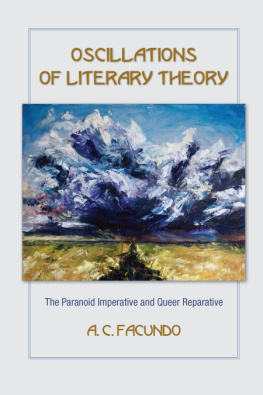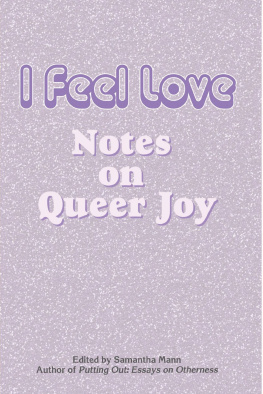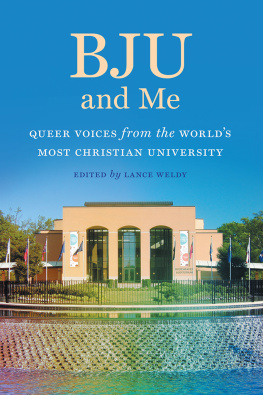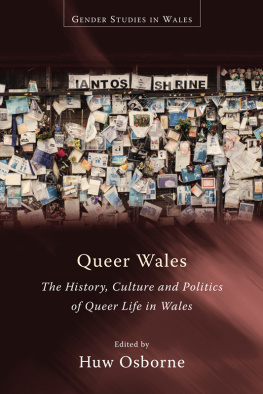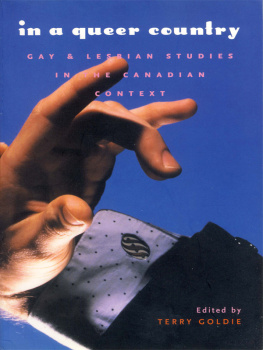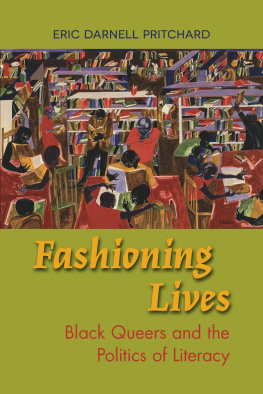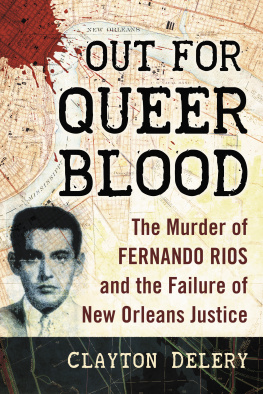Oscillations of Literary Theory
SUNY SERIES , T RANSFORMING S UBJECTS :
P SYCHOANALYSIS , C ULTURE , AND S TUDIES IN E DUCATION
Deborah P. Britzman, editor
Oscillations of Literary Theory
The Paranoid Imperative and Queer Reparative
A. C. Facundo
Cover art: VanishingPoint by A. C. Facundo, oil on canvas, 16 20, 2015
Published by
STATE UNIVERSITY OF NEW YORK PRESS
Albany
2016 State University of New York
All rights reserved
Printed in the United States of America
No part of this book may be used or reproduced in any manner whatsoever without written permission. No part of this book may be stored in a retrieval system or transmitted in any form or by any means including electronic, electrostatic, magnetic tape, mechanical, photocopying, recording, or otherwise without the prior permission in writing of the publisher.
For information, contact
State University of New York Press
www.sunypress.edu
Production, Laurie D. Searl
Marketing, Anne M. Valentine
Library of Congress Cataloging-in-Publication Data
Names: Facundo, A. C., 1985 author.
Title: Oscillations of literary theory : the paranoid imperative and queer reparative / A. C. Facundo.
Description: Albany : State University of New York Press, 2016. | Series: SUNY series, transforming subjects: psychoanalysis, culture, and studies in education | Includes bibliographical references and index.
Identifiers: LCCN 2016007707 (print) | LCCN 2016029030 (ebook) | ISBN 9781438463094 (hardcover : alk. paper) | ISBN 9781438463087 (pbk. : alk paper) | ISBN 9781438463100 (e-book)
Subjects: LCSH: Literature, ModernPsychological aspects. | Psychoanalysis and literature. | Literature, Modern20th centuryHistory and criticism. | Paranoia in literature. | Homosexuality in literature.
Classification: LCC PN56.P92 F35 2016 (print) | LCC PN56.P92 (ebook) | DDC 809/.04dc23
LC record available at https://lccn.loc.gov/2016007707
10 9 8 7 6 5 4 3 2 1
For Margo
Contents
C HAPTER O NE
The Death Drive and the Life Drive Revisited
II. Economic Binding as the Death Drive:
The Critique of Totalitarianism
C HAPTER T WO
A Tempest in a Test Tube: The Paranoid Imperative of Scientia Sexualis and Psychoanalysis in Vladimir Nabokovs Lolita
C HAPTER T HREE
An Ethics of Failure: Visual Literalization as a Queer Vanishing Point in Mark Danielewskis House of Leaves
C HAPTER F OUR
Kill Your Children: Queer Temporalities and Failed Identification in Timothy Findleys The Wars
C HAPTER F IVE
Reading the Queer Reparative in Kazuo Ishiguros Never Let Me Go
Acknowledgments
A constellation of individual and institutional support has made it possible for me to complete this project. I thank the Social Sciences and Humanities Research Council of Canada (SSHRC) for investing in my research throughout the several stages of its development, of which this book is a product. Because institutional intelligibility is so vital to a project of this magnitude, I am grateful to the English Departments at York University and University at Buffalo (SUNY), as well as UBs Center for the Study of Psychoanalysis and Culture, for providing me with library and technology resources, as well as vibrant academic communities that allowed my ideas to flourish. I thank members of ACCUTE (Association of Canadian College and University Teachers of English) for providing a collegial venue to present my ideas annually and receive feedback as this project took shape.
I feel privileged to work with several scholars whose conceptual and practical insights were integral both to the development of my thinking and to the publication of my writing. I thank Tim Dean in his capacity as postdoctoral mentor for his incisive perception, attentive guidance, and detailed feedback, as well as for giving me the opportunity to work with him. I am indebted to Deborah Britzman, who has helped me create new paths of inquiry and reinvigorated my capacity to ask new questions. As the series editor, Deborah has been the driving force behind the publication of this book, and I thank her sincerely for believing in my work. I thank my editor, Beth Bouloukos, for showing interest in my writing, for taking the time and effort to see this project through, and for working with me so generously. I give thanks to Laurie Searl, Anne Valentine, and the marketing and production department at SUNY Press for the collaborative support. I also thank the anonymous reviewers who communicated to me through SUNY Press to provide feedback that was necessary to the books completion. As a doctoral supervisor and dear friend, Terry Goldie has been a consistent source of clear thinking and grounded perspective in his editorial and conceptual feedback. The rigor with which Thomas Loebel treated my writing was indispensable to my thinking, and I am grateful to him. I suspect that I have not let on to either Terry or Thomas how much Ive appreciated (and relied on) their constant support. I am grateful for my conversations with Adam Phillips, who inspired the final stages of the manuscript and the rewriting of the Introduction.
I thank my colleagues and peer readers who devoted a significant amount of time and energy providing feedback on early drafts of the manuscript. Bernice Neal has read multiple versions since its inception and saw its evolution with staggering enthusiasm. Jared Morrow and Thom Bryce-McQuinn enriched the dialogical aspects of the book with their generous readings. I offer my thanks to Steven Bruhm, who provided thorough and extensive conceptual and editorial feedback for the purposes of publication.
Many members of the larger academic community enlivened my thinking, ultimately to the benefit of this book. These thinkers include Hannele Kivinen, Robin Morden, Kristen Ames, Duncan Clegg, Kate Siklosi, Richard Welch, Dani Spinosa, Navneet Alang, Denise Handlarski, Jonathan Vandor, Aparna Tarc, Lisa Farley, Daena Crosby, Natalie Samson, Sorouja Moll, Karen MacFarlane, Craig Patterson, Smaro Kamboureli, Clive Thomson, and Lynn Weinlos. I also thank John Englar and the staff at Jet Fuel Coffee Shop, for providing a neighborhood office space, for caffeinating this project, and for the familial consistency that added structure to my work day.
I thank my parents, Lucille and Ramon Facundo, whose abundant and unconditional support allowed me to thrive. Thanks to my brother, Mark Facundo, whose sense of humor provided a kind of support that no one else could replicate. I thank the rest of my large family for teaching me how familial consistency enables me to work and think.
Margo Gouley was a most generous and exacting reader. I trust Margo for incisive observations and reliable suggestions, and I owe the clarity of my thought to her. As my companion in difficult thinking, Margo has shared with me a joy that I had not previously known. With love, I thank her.
Introduction
Queering Omniscience
Myths of decline are myths of progress inverted.
Adam Phillips, Missing Out, 113
An attachment to catastrophe offers an unexpected degree of comfort. At best, catastrophe provides an alibi for letting go of desire and of the wish. At worst, catastrophe allows an escape from the difficult vulnerability that can accompany the pleasure of surprise and the surprises of pleasure. Such attachment, in other words, offers a life structured by anticipation and certainty. Catastrophe allows an insistence on no future; but the certainty of that insistence mirrors the certainty in any mythical future that it would deny.

